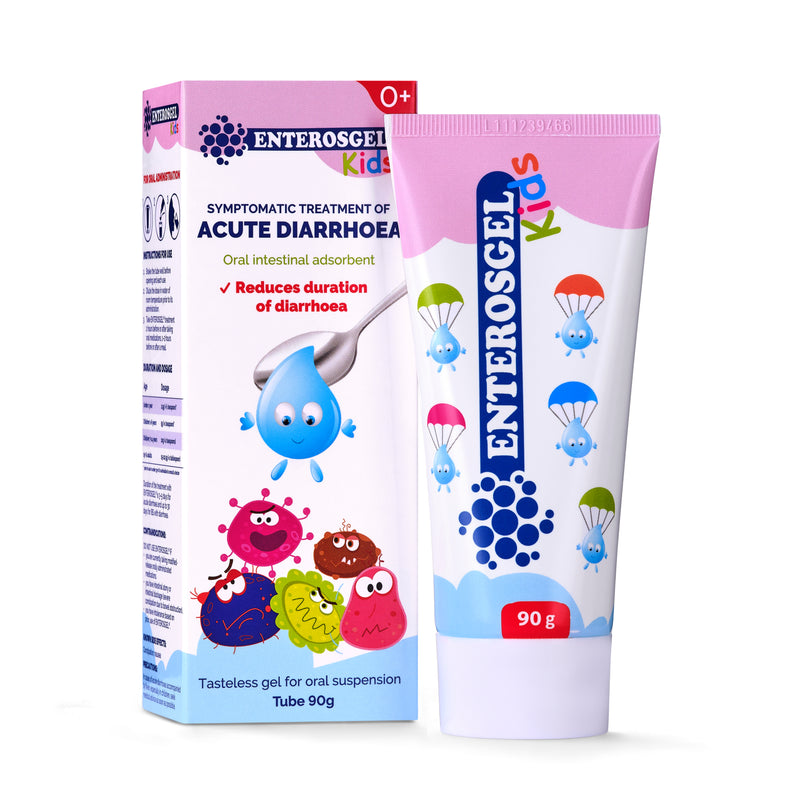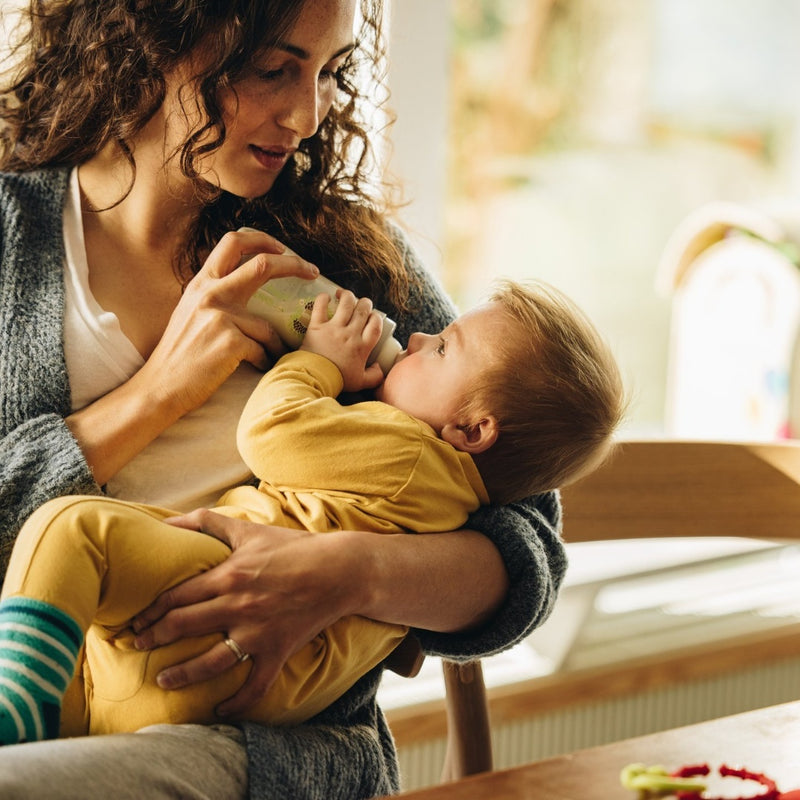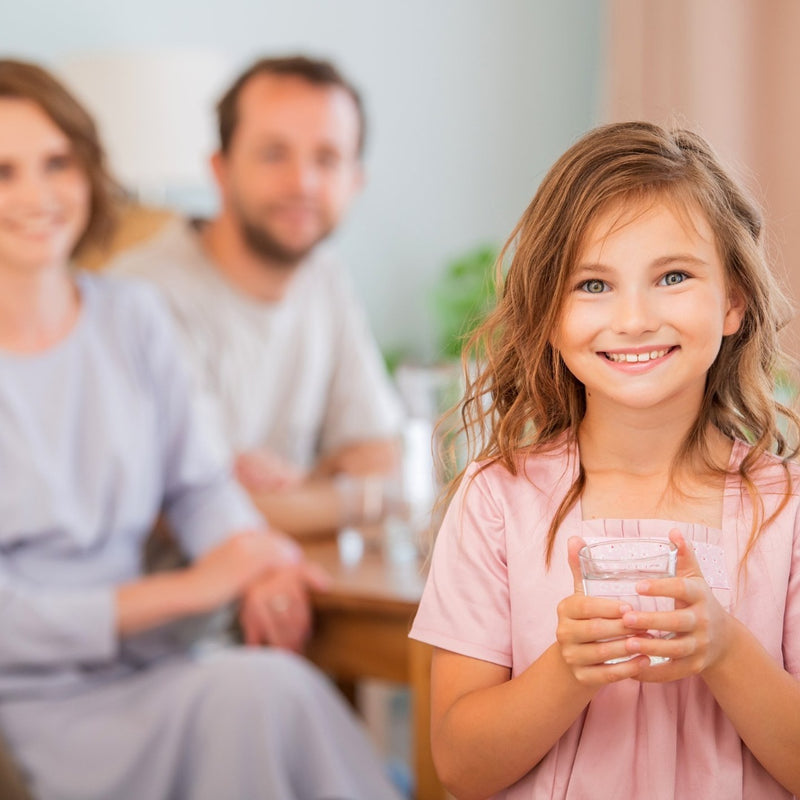Acute diarrhoea in children
In children diarrhoea can be “acute” or short-term which develops suddenly and lasts for less than two weeks, or it can be longer lasting often termed “chronic”. Diarrhoea in children is most commonly caused by an infection in the gut.
Acute intestinal infection resulting in diarrhoea is a common condition in the UK, annually there are an estimated 17 million cases. Each year children experience more than one episode and 10% of children under the age of 5 years visit a healthcare provider with the condition.

Causes of acute diarrhoea in children
Acute diarrhoea in children is usually triggered by infection in the small or large intestine. It is defined as the sudden onset of three or more loose or watery stools per day and can be of mild to severe intensity. The reason for the loose stools is they contain more water due to the disruption of the gut lining which is usually responsible for absorption of substances and water from the gut contents.
Most cases of childhood acute diarrhoea are caused by a virus, the most common is rotavirus, although the introduction of a rotavirus vaccine for all UK children in 2013 has reduced the number of cases. Adenoviruses and norovirus are other common viruses which can cause diarrhoea.
Food poisoning is another cause of diarrhoea when a child eats food infected with bacteria for example Campylobacter, Salmonella or E.coli. An infection can also be caused by parasites or contaminated water, but this is more common when traveling abroad. Diarrhoea can also be caused by non-infectious causes such as food allergies and anxiety or various disorders of the gut, although these are less common in children.

Acute diarrhoea symptoms
Diarrhoea in children often begins with vomiting which clears after 1-2 days. It can vary from a mild stomach upset and minor diarrhoea for a few days, to severe watery diarrhoea that can last for longer. The diarrhoea can be accompanied by other symptoms such as tummy pain, fever, headaches and achy arms and legs. It often lasts for 3-5 days, and slight diarrhoea or loose stools can continue for a week before stools return to normal.
Both diarrhoea and vomiting can cause dehydration in children, which can be serious and occurs more often in babies under 1 year. Water and electrolytes are lost via watery stools and when these are not replaced, dehydration occurs. Mild dehydration is common in children and encouraging them to drink plenty of fluids can help reverse it. However, severe dehydration can be very serious unless it is treated quickly, as the body needs fluid to be able to function normally. Children with dehydration can show symptoms of passing little urine, a dry mouth, tongue or lips, sunken eyes, being weak, irritable or lethargic. Severe dehydration shows in children as signs of drowsiness, cold hands or feet, pale/mottled skin, passing less urine and fast breathing. Any children showing these signs should receive immediate medical attention.

When to seek medical help?
Most children with diarrhoea have mild symptoms and get better in a few days without seeking medical advice. For children in the following situations, it is important to seek medical advice:
- Children under 6 months with many episodes of diarrhoea or they persist for more than 24 hrs.
- Children with an underlying medical condition.
- Child becomes dehydrated, drowsy or confused.
- Child is vomiting and unable to keep fluids down.
- Child has blood in their diarrhoea or vomit.
- Child has severe tummy pain.
- Child has severe symptoms or if they are getting worse (diarrhoea that does not start to improve after 4 days, or vomiting for more than 2 days).

What treatment can you give to children?
Children should be encouraged to drink fluids to help prevent dehydration, small volumes and often is the best approach and avoid fizzy drinks or fruit juices as they can worsen diarrhoea.
The current NHS guidelines for the treatment of diarrhoea and/or vomiting in children recommend oral rehydration solution which is effective in maintaining hydration. The use of anti-diarrhoea medicine to stop diarrhoea such as loperamide is not recommended for children under 12 years, as there are reported serious safety concerns. Painkillers such as paracetamol or ibuprofen can be given to ease a fever or headache.
Although these can ease dehydration or other symptoms such as a fever, they do not treat the underlying cause of the diarrhoea or reduce its duration or intensity. However, oral intestinal adsorbents, such as ENTEROSGEL can be used to treat diarrhoea and reduce its duration and frequency. Several clinical studies have confirmed that ENTEROSGEL improves outcomes in children with acute diarrhoea. In the UK, a recent randomized controlled study showed that ENTEROSGEL significantly reduced the duration of diarrhoea in adults with acute diarrhoea.
In the UK, ENTEROSGEL is the only safe and effective treatment that can be given to babies from birth and children younger than 12 years old that will help reduce the duration of acute diarrhoea. ENTEROSGEL can also be mixed into oral rehydration solution and given together, so this combination relieves both the diarrhoea and prevents dehydration. As a precaution in children under 3 years ENTEROSGEL is recommended to be given on advice of a doctor, to check that young children have acute diarrhoea and are not seriously dehydrated or require additional medical treatment.

How to prevent spread of infection?
It is a good idea to treat any acute diarrhoea as potentially infectious that can pass easily between people. To help prevent transmission it is important to practice good personal and domestic hygiene; for hands use liquid soap and warm water, clean and disinfect bathrooms, and wash soiled bedding and towels on a hot wash. Children should be kept away from nursery or school until at least 48 hours after the last episode of diarrhoea or vomiting.
